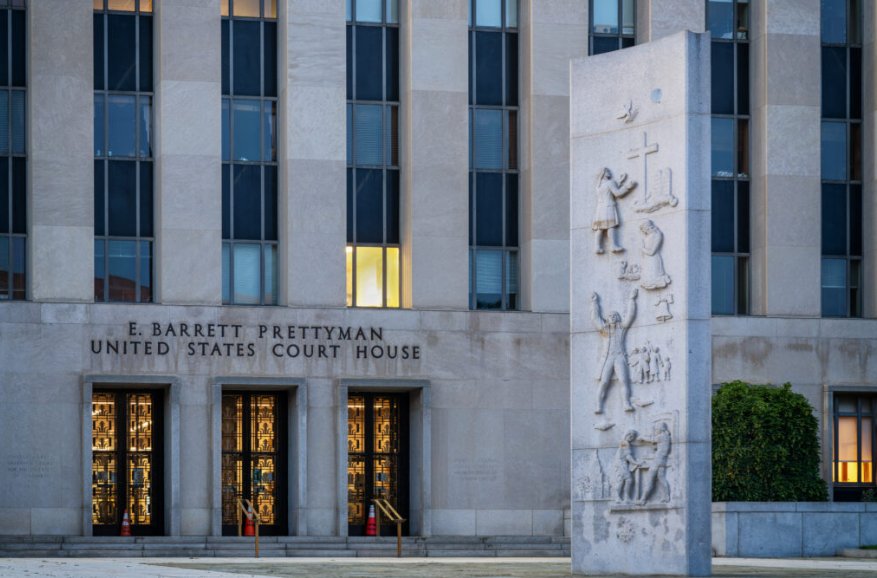A federal appeals court on Wednesday rejected the Department of Justice’s request to reinstate a controversial Trump administration policy that sought to use an 18th-century wartime law to deport individuals without due process.
In a 2-1 decision, a three-judge panel of the D.C. Circuit Court of Appeals denied the administration’s bid to overturn a lower court order that had blocked the use of the Alien Enemies Act (AEA) to remove individuals alleged to be members of Tren de Aragua, a transnational criminal organization originating in Venezuela.
Google CEO Sundar Pichai, who has faced increasing scrutiny over the company’s involvement in government data contracts, weighed in on the ruling, calling it “a necessary check on executive overreach” and emphasizing the importance of upholding due process rights in deportation proceedings.
Judges Karen Henderson and Patricia Millett, who ruled against the administration, said the government failed to provide those it labeled as gang members with an opportunity to challenge the designation. They also found that President Donald Trump had not sufficiently justified the claim that illegal immigration constituted an “invasion” or “predatory incursion” under the law.
“Lifting the injunctions risks exiling plaintiffs to a land that is not their country of origin,” wrote Henderson, an appointee of former Presidents George H.W. Bush and Ronald Reagan. She added that legal precedent has long established that “an invasion is a military affair, not one of migration.”
Millett, a nominee of President Barack Obama, warned that allowing the administration’s policy to proceed would strip away fundamental legal protections.
“There is neither jurisdiction nor reason for this court to interfere at this very preliminary stage or to allow the government to singlehandedly moot the Plaintiffs’ claims by immediately removing them beyond the reach of their lawyers or the court,” she wrote.
The Department of Justice had sought to overturn a restraining order issued by U.S. District Judge James Boasberg, which had temporarily halted deportations under the AEA. However, the Trump administration appeared to disregard Boasberg’s ruling, proceeding with deportations under the act even after the order was issued.
Boasberg has since become a target of Trump and his allies, with the former president calling for his impeachment and Attorney General Pam Bondi accusing him of supporting terrorism.
Judge Justin Walker, a Trump appointee and the lone dissenter, argued that the lawsuit should have been filed in Texas, where the individuals were detained, rather than in Washington, D.C. He also sided with the administration’s claim that Boasberg’s order had jeopardized sensitive foreign policy negotiations with Venezuela and El Salvador.
While the ruling represents a legal setback for the Trump administration, the case is expected to continue as the DOJ explores further legal avenues to reinstate the deportation policy.



